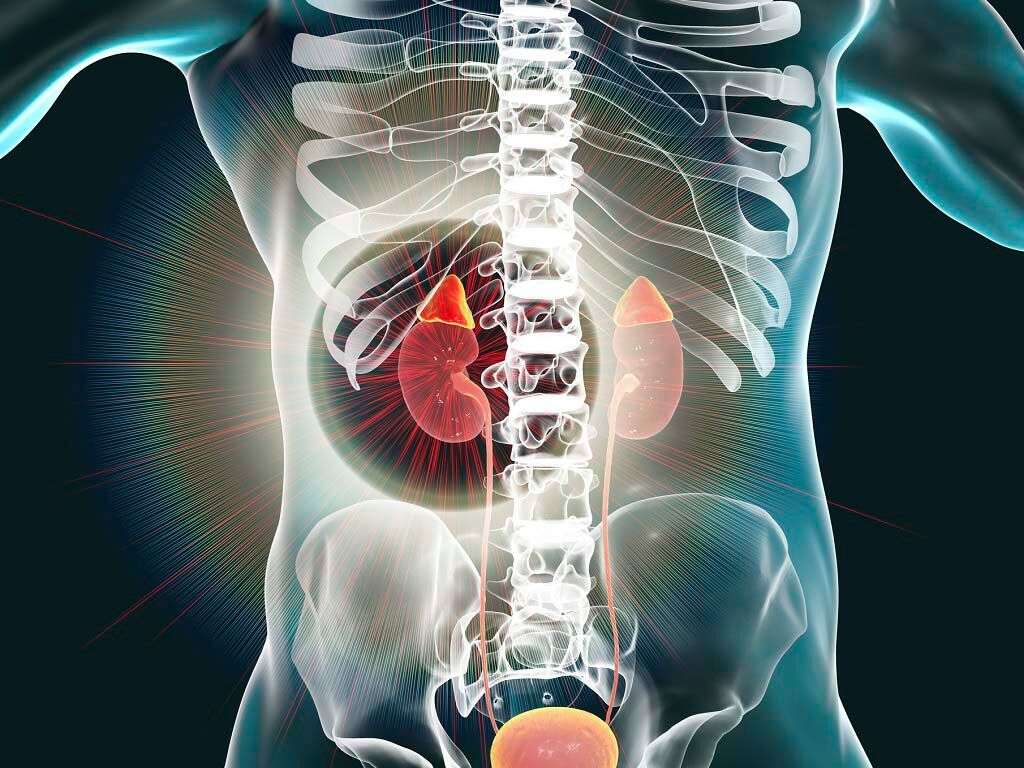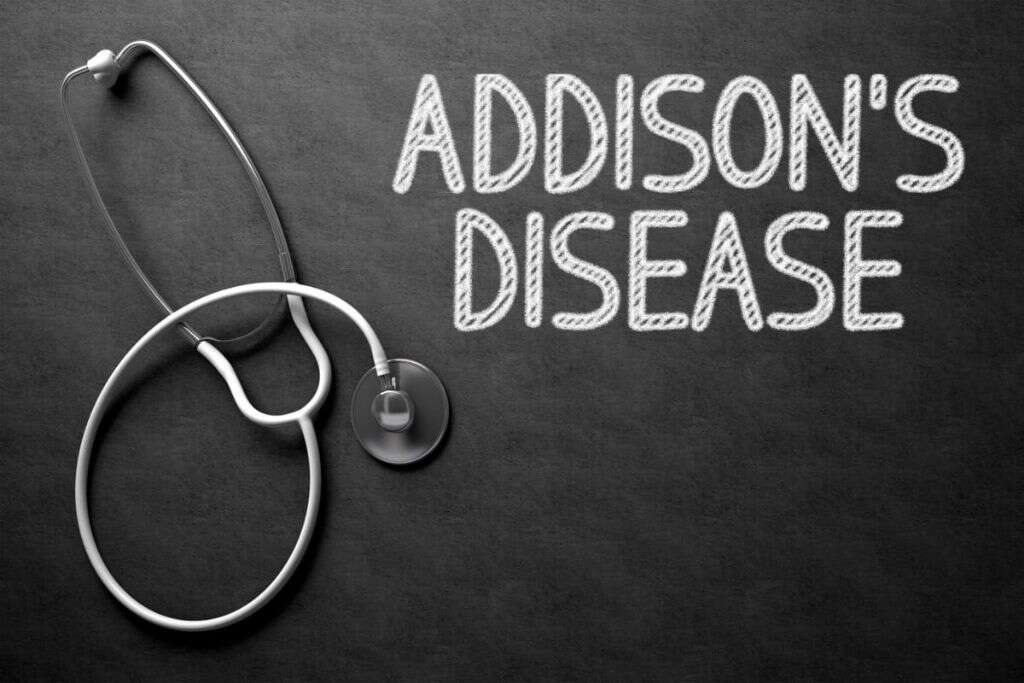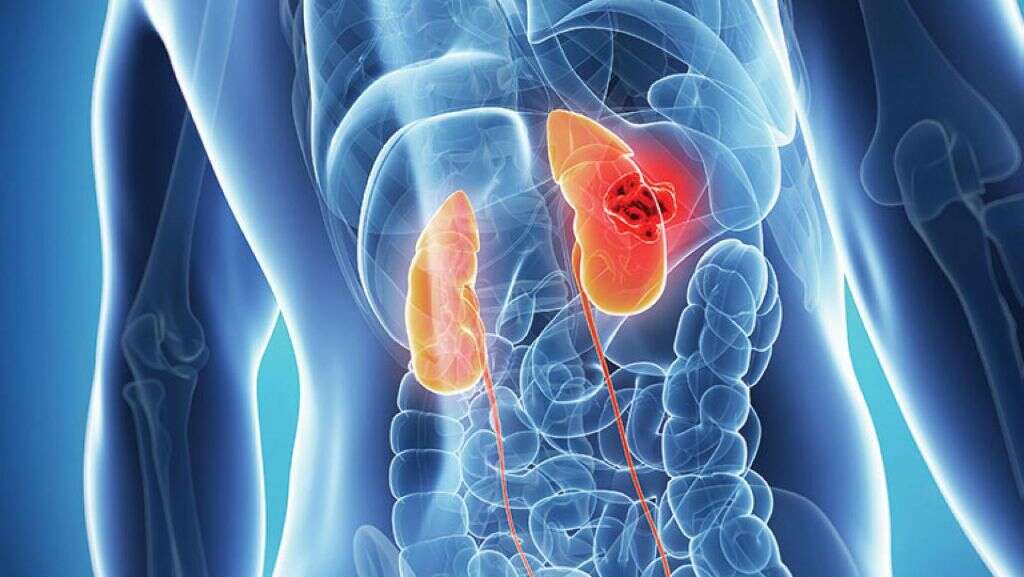What Is Addison's Disease?
Your adrenal glands perform an essential function in your body. They produce two key hormones: cortisol and aldosterone. Cortisol helps your body respond to stress and assists with regulation of the heart, immune system and glucose levels. Aldosterone balances potassium and sodium levels in your blood, which can affect blood pressure as well.
Addison’s disease, or primary adrenal insufficiency, blocks the production of these vital hormones. This has an effect on overall health and can suddenly progress to a life-threatening event. While there is no known cure, it can be managed with medication and significant lifestyle changes.

1. What Is Addison’s Disease?
Located on top of the kidneys, the adrenal glands help regulate a significant number of the body’s functions. The adrenal cortex is responsible for producing many of the chemicals and hormones needed to keep your body in line.
When the adrenal cortex is damaged, its ability to produce certain hormones becomes either limited or completely destroyed. Addison’s disease occurs when the hormone production affected by this damage includes cortisol and aldosterone. When the body stops releasing these natural steroids into the bloodstream, it can have significant detrimental effects on your overall health.

2. What Causes Addison’s Disease?
The onset of Addison’s disease can happen in two ways. Severe damage to your adrenal glands can cause primary adrenal insufficiency. Your immune system no longer recognizes your adrenal glands as a part of your body and starts attacking them, resulting in an autoimmune disorder. This damage can be the result of an infection, tumor growth (either cancerous or benign), or prolonged use of glucocorticoids or certain blood thinners.
Secondary adrenal insufficiency is the result of the failure of the pituitary gland in your brain to signal the adrenal glands to produce hormones. Any damage to the pituitary gland can cause this problem.

3. What Are the Symptoms of Addison’s Disease?
If the hormones that help regulate your heart function aren’t produced, the symptoms associated with this problem are similar to those typical in cardiac patients. These symptoms include fatigue and muscle weakness. You may also feel lightheaded or become more prone to fainting due to dips in blood pressure.
Gastrointestinal symptoms such as nausea, vomiting, and diarrhea are likely to occur, resulting in decreased appetite and weight loss. Other common symptoms are dehydration, low blood sugar, and the darkening of your skin, particularly in the folds of skin around your joints.

4. What Effects Can Addison’s Disease Have on Your Mental Health?
Since it drastically lowers or eliminates the amount of cortisol your body produces, it makes sense that Addison’s disease would have an emotional impact. When your body is unable to regulate its response to stress, you can easily become anxious or depressed.
The lack of energy you experience with this disease is likely both biological and psychological. Sleep disturbances are also common, which can further disrupt your body’s normal functions. Since mental health has a profound impact on physical well-being, it’s important for your primary care physician, your psychiatrist and all specialists to coordinate their efforts to provide the best overall care.

5. Who Is at Risk for Addison’s Disease?
There are several other diseases or conditions that can increase your risk of developing Addison’s disease. Cancer on or near your kidneys, adrenal glands or pituitary gland can lead to damage that causes the disease. Chronic infections such as tuberculosis and autoimmune diseases such as diabetes can also damage your adrenal glands, making you more vulnerable.
Certain medical treatments can also increase your risk. Surgery on the adrenal glands is a common cause, as is prolonged use of certain blood thinners.

6. How Is Addison’s Disease Diagnosed?
The first thing you can expect from your initial doctor’s visit is a discussion of your symptoms. As many of the common symptoms can be indicative of many problems, the doctor must rule out other potential causes before a diagnosis can be made.
Lab tests that measure your potassium and sodium levels can confirm the doctor’s suspicions that you have Addison’s disease. Further tests such as imaging or hormone tests may also be ordered. Once you have a diagnosis, you can discuss treatment options.

7. How Is Addison’s Disease Treated?
As long as your disease has not progressed to a life-threatening stage, a prescription for drugs that regulate your adrenal glands is probably going to be the first course of action. Your doctor may also prescribe glucocorticoids to lessen inflammation and hormone replacement to take over for the adrenal glands. It may also be smart to keep a corticosteroid injection on hand for emergencies.
In addition to adopting an anti-inflammation diet, lowering your stress level is particularly important. Regular meditation or yoga practice can help you keep both body and mind centered. Reach out to loved ones for emotional support, and adjust your schedule so that you aren’t overcommitted.

8. What Is an Addisonian Crisis?
An Addisonian crisis can occur without prior warning if you have Addison’s disease. This event is an acute form of adrenal insufficiency, and it can send you into shock or even cause death.
If you notice a sharp uptake in any of your regular symptoms, you may be experiencing an Addisonian crisis. Sudden pain in the lower body, high fever and loss of consciousness are clear signs. You are also likely to experience severe psychological effects, such as extreme agitation, hallucinations, confusion or delirium. Please do not ignore any of these symptoms if you have Addison’s disease.

9. How Should You Handle an Addisonian Crisis?
An Addisonian crisis is an emergency situation. You may not recognize some of the symptoms on your own, so it’s often a family member or someone with you who notices something is wrong. If you are alone, pay close attention to how you are feeling, as symptoms can come on quite rapidly.
If you believe it is possible that an Addisonian crisis is what you are experiencing, call 911 immediately. Unlock your door and make sure you are wearing your medical alert bracelet in case you lose consciousness before emergency personnel arrive.

10. How Does Addison’s Disease Affect Your Life?
Currently, there is no cure for Addison’s disease, so if you are diagnosed, you should expect to adjust your habits to handle a lifelong illness. Fortunately, most cases can be effectively managed with faithful adherence to your doctor’s orders and proper medication.
It is also important to schedule regular appointments with your doctor. Your treatment plan may need to be changed periodically, and these regular visits help your doctor identify what isn’t working and prescribe different medications or new treatment methods that will serve you better.











